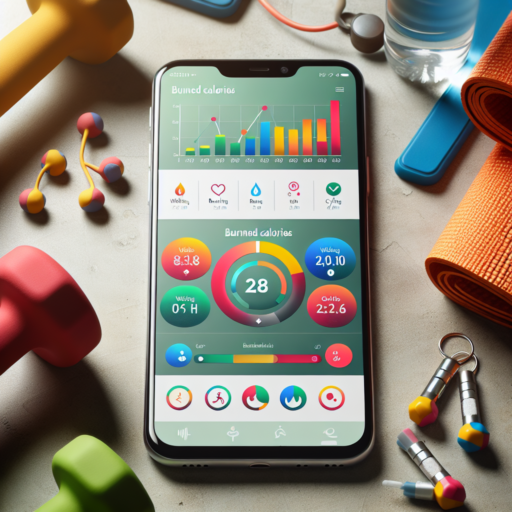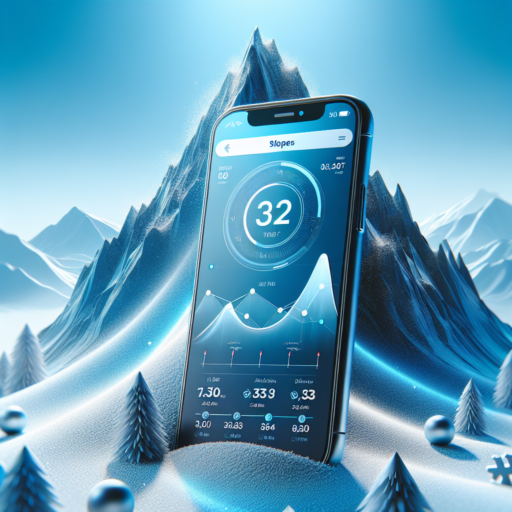What is the best app to track calories burned?
Identifying the best app to track calories burned is crucial for anyone looking to optimize their fitness journey or weight management plan. With the myriad of options available, it’s essential to consider factors like accuracy, usability, and the range of activities covered to find an app that meets your specific needs. Among the sea of available options, certain applications have distinguished themselves by providing comprehensive and user-friendly experiences.
One notable app that consistently ranks highly for calorie tracking is MyFitnessPal. It offers a vast database of foods and exercises, making it easier for users to log their daily intake and activities. Moreover, its calorie tracking feature uses a personalized approach, taking into account the user’s weight, height, age, and goals. This tailored tracking helps users stay on track with their objectives, whether it be weight loss, maintenance, or muscle gain.
Another contender is Fitbit. While primarily known for its wearable technology, Fitbit’s app also provides an excellent platform for tracking calories burned, steps taken, and various exercises. The app doesn’t just rely on manual inputs; it also integrates data from the Fitbit device, offering a more accurate and seamless tracking experience. The ability to sync with other apps and devices further enhances its versatility and makes it a popular choice among fitness enthusiasts.
When choosing the best app to track calories burned, it’s imperative to consider your personal preferences, the type of activities you engage in, and the level of detail you desire in tracking your progress. By exploring these top-rated apps, you can find a powerful tool to aid in your health and fitness journey, making it easier to achieve and maintain your desired outcomes.
How do I track my calories burned?
Tracking the number of calories burned can help you maintain a healthy lifestyle and achieve fitness goals. The most accurate way to monitor this is through wearable devices and fitness apps. Devices like smartwatches and fitness bands often come equipped with sensors that monitor your heart rate, the number of steps you take, and even your sleep quality. These parameters are crucial for estimating the number of calories you burn in a day. Fitness apps further allow you to tailor your tracking by inputting specific exercises, durations, and intensity levels.
Furthermore, online calorie calculators offer another straightforward method to estimate calorie expenditure. By inputting data such as age, gender, weight, height, and the type or intensity of activity, you can receive an approximate count of calories burned. While this method may not be as precise as wearable technology, it provides a helpful estimate for those without access to fitness devices.
Lastly, manual calculation methods can serve as an educational tool to understand the components of calorie burning. Learning the MET (Metabolic Equivalent of Task) values of activities and how to apply them in calculations with your body weight can give insights into how different activities contribute to your calorie burn. Although more time-consuming, this method fosters a deeper understanding of how your body expends energy.
No se han encontrado productos.
What is the iPhone app that tells you how many calories you burn?
Many iPhone users seek ways to track their fitness progress and calorie burn efficiently. The market offers a myriad of apps, but one standout option for iOS devices is MyFitnessPal. This app has garnered widespread acclaim not only for its comprehensive food database but also for its ability to provide detailed insight into the calories you burn through various activities.
MyFitnessPal allows users to log their daily activities, from walking and cycling to weight training and yoga, and estimates the number of calories burned during these exercises. It integrates seamlessly with the Health app on iPhone, which means it can also pull in data from other fitness apps and devices, offering a holistic view of your daily calorie expenditure.
Beyond just tracking calories, MyFitnessPal offers features such as personalized fitness goals, nutritional insights, and a supportive community platform. Users can scan barcodes of food items for quick logging, making it easier than ever to stay on top of their calorie intake and burn. Whether you’re looking to lose weight, maintain your current physique, or simply become more active, MyFitnessPal is a comprehensive tool that adapts to your personal fitness journey.
Are calorie burning apps accurate?
When it comes to monitoring fitness progress, many individuals turn to calorie burning apps for guidance. However, the accuracy of these tools often comes into question. A multitude of factors contribute to the efficiency of these applications in providing precise measurements. These include the methodology behind the calorie estimation algorithms and the user’s input data accuracy.
One of the core issues affecting calorie burning app accuracy is the generic nature of the algorithms they use. Most apps calculate calories burned based on generalized formulas that take into account age, weight, height, and activity level. However, individual metabolic rates and fitness levels can significantly vary, leading to potential discrepancies in the calculated outcomes. This general approach can sometimes oversimplify the complex nature of human physiology.
Key Components Influencing Accuracy
- User Input: The preciseness of user-provided data such as weight, height, and age.
- Activity Type: How well the app distinguishes between different types of physical activities and their respective calorie-burning rates.
- Technology Integration: The use of sensors and integration with other devices, which can enhance data collection and result in more accurate estimations.
Despite these challenges, advancements in technology and better integration with wearable devices have begun to improve the accuracy of calorie burning apps. However, users should be mindful of the potential limitations and consider these tools as part of a broader approach to fitness and wellness, rather than as an absolute measure of their calorie expenditure.


